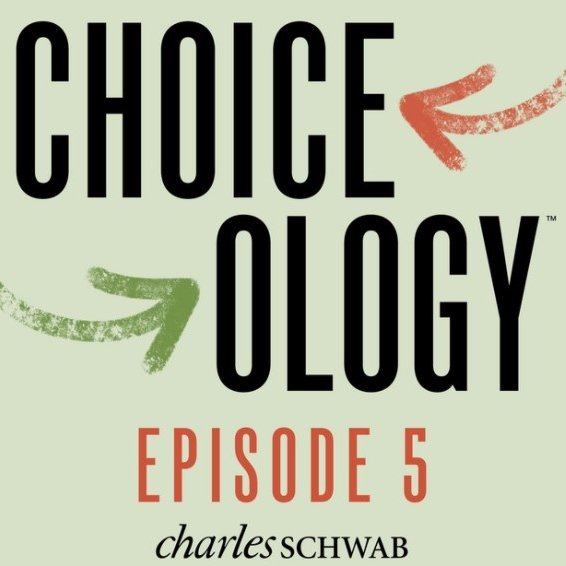PODCASTS
True Love: Is It Real?
Gimlet
What is love? With half of first time American marriages ending in divorce by the 20th anniversary, and infidelity being widespread, this podcast asks: have we been lied to by our love songs?
The Science of Magic
Stitcher and Scott Barry Kaufman
What is magic? What is the link between psychology and magic? In this podcast, psychologist and magic researcher Gustav Kuhn explores the link between magic and well-being, early childhood experiences of magicians, the link between magic and creativity, and the neural basis of magic.
Self Criticism: Sue and Ann Explore Self Attack and Internal Scripts
Sue Marriott and Ann Kelley
Hearing criticism impacts one's nervous system no matter if the voice is their own or someone else's. Dr. Ann Kelley and Sue Marriot, hosts of the Therapist Uncensored take a deep dive into self-criticism, self attack, and internal criticism of others. They look at how it relates to attachment styles and use it as a window in to unconscious scripts one carries about themselves and the world.
DSM: A History of Psychiatry's Bible
New Books Network
Over the past seventy years, the Diagnostic and Statistical Manual of Mental Disorders (DSM), has evolved from a virtually unknown and little-used pamphlet to an imposing and comprehensive compendium of mental disorder. Its nearly 300 conditions have become the touchstones for the diagnoses that patients receive, students are taught, researchers study, insurers reimburse, and drug companies promote. In this episode of New Books in Neuroscience, neuroscientist Galina Limorenko discusses Alan Horowitz's pathbreaking book DSM: A History of Psychiatry's Bible, which traces the controversial history of the DSM.
The Anatomy of Kindness
BBC
Using evidence from the BBC Kindness Test, neuroscientists and evolutionary psychologists ask if we can ever be purely kind, and whether our motivations matter. Author Claudia Hammond first explores the motivations and decisions of extreme altruists, and then she examines everyday acts of kindness. She examines the evidence and decides whether one can ever carry out an act of pure kindness.
Creating God
Hidden Brain
What is religion really? In this episode of NPR's The Hidden Brain, social psychologist Azim Shariff argues that religion comes from a deep human need that can be evaluated scientifically and academically. This episode is bound to turn some heads with its arguments that our religious piety originated from Darwinian evolution and creating god was necessary for our species’ proliferation.
Zapping The Brain
inStem Science Communication and Outreach
The idea of ‘zapping’ or stimulating the brain with electric current to treat neurological and psychiatric disorders dates back several centuries. In this episode of Zapping the Brain, Niveditha Thirugnanasambandam traces the history of this controversial process, and explores how it can help treatment of brain disorders in the past.
Neuroscience and the Law
Scientific American
In this podcast, Michael Gazzaniga talks about neuroscience's impact on legal practice, and The Law and Neuroscience Project, a new MacArthur Foundation effort, which he directs, to delineate the issues surrounding neuroscience and the law.
Hypnotherapy in Hypnotic
Ryan Engelstad and Hayley Roberts
In this episode of Pop Psych 101, Engelstad and Roberts discuss Hypnotherapy in Netflix's Hypnotic. They talk about fears, control, and buy in. They also discuss how it compares to other therapeutic techniques, and really hammer home the idea that it is important to ask questions when you want to know more!
How Tight and Loose Cultures Wire Our World
Stitcher and Scott Barry Kaufman
Michele Gelfand uses field, experimental, computational, and neuroscience methods to understand the evolution of culture–as well as its multilevel consequences for human groups. In this podcast, she draws upon her research to unravel the concept of social norms in our communities.
The Sociology and Psychology of Cults
Katie Gordon and Leo Bobadilla
TW: This episode contains some discussion of cults and sexual abuse.
In this podcast, Janja Lalich, a leading world authority in cults and extremist groups, explores the world of cults. Drawing on her own experience in a political cult, she speaks about how it influenced her later research. Lalich speaks about why people stay in cults, the parallels between cults and abusive relationships, and how one might extremist religious and political factions from cults.
Swimming with Sharks
Charles Schwab
This episode of Choiceology with author Dan Heath, examines a bias that affects the way one perceives both risk and reward. Heath traces how this bias may have helped one's ancestors avoid lions lurking in the tall grass—but may also negatively affect one's decisions around things like vacations and lotteries.
Real World Ethics
David Edmonds and Nigel Warburton
Are thought experiments the best way of doing practical ethics? Not according to philosopher James Wilson. In this podcast, he talks about how we need the rich detail of real cases or complex imaginary cases, not a simplified version of reality, to make sense of the moral problems we face.













